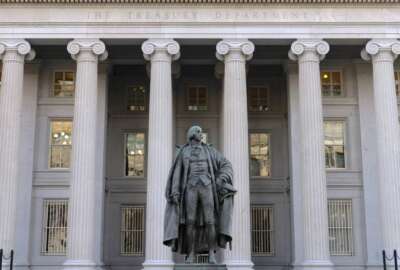Arkansas judge pulled from death penalty cases seeks probe
An Arkansas judge who blocked executions the same day he participated in an anti-death penalty demonstration wants probes into the attorney general's office and the...
LITTLE ROCK, Ark. (AP) — An Arkansas judge who participated in an anti-death penalty demonstration after issuing an order blocking executions asked two disciplinary panels Wednesday to investigate the state’s attorney general and Supreme Court, accusing both of violating ethics rules when he was barred from handling capital punishment cases.
In a letter to the Judicial Discipline and Disability Commission and the state Committee on Professional Conduct, Pulaski County Circuit Judge Wendell Griffen claimed Attorney General Leslie Rutledge and justices violated conduct rules by not giving him a chance to respond to efforts to disqualify him.
“There is something fundamentally unfair about refusing to hear all parties to a dispute,” Griffen said at a news conference with his attorneys.
Griffen issued a temporary restraining order on April 14 blocking from using a lethal injection drug after a medical supply company said it wasn’t sold to be used for executions. That afternoon, Griffen lay on a cot outside the governor’s mansion wearing an anti-death penalty button and surrounded by people holding signs opposing the death penalty. Two days later, justices lifted Griffen’s order and removed him from the case. They also barred him from handling any other cases related to the death penalty.
Though the judge strapped to a cot evoked images of a condemned inmate awaiting lethal injection, Griffen has said he was portraying Jesus and participating in a Good Friday prayer vigil with his church. Griffen bristled at the idea that he shouldn’t have participated in the vigil after signing the order blocking the execution drug’s use.
“Because then what you’re saying is I cannot live out my faith unless I check my docket,” Griffen said.
The court had referred Griffen to the judicial conduct committee after its order disqualifying the judge. The panel’s director declined to comment Wednesday. Stark Ligon, director of the Committee on Professional Conduct, confirmed receiving Griffen’s letter and said an attorney would be assigned to investigate the complaint.
Griffen wrote in his letter that since the attorney general normally represents judges, Rutledge should have informed him before asking the court to remove him from the execution drug case so he could retain his own attorney.
Chief Justice Dan Kemp did not immediately respond to a request for comment. A spokesman said Rutledge would review the letter and respond in the appropriate venue if necessary.
McKesson Corp. had sought the temporary order, saying it was misled by Arkansas that the vecuronium bromide sold to the state would be used for inmate care. Another judge assigned the case after Griffen was disqualified also blocked drug’s use. The state Supreme Court also lifted that order, allowing Arkansas to conduct its first execution in nearly 12 years. The state has put three inmates to death this week and is preparing for a fourth execution Thursday night.
Griffen has said he is morally opposed to the death penalty, but that his personal views alone shouldn’t disqualify him from hearing certain cases.
___
Follow Andrew DeMillo on Twitter at www.twitter.com/ademillo
Copyright © 2025 Federal News Network. All rights reserved. This website is not intended for users located within the European Economic Area.





